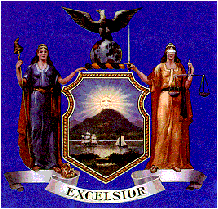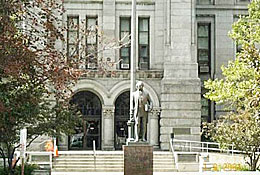1. N.Y. Est. Powers and Trusts Law section 4-1.1 (McKinney 2013) provides the New York laws of intestate succession. It provides:
a. If a decedent is survived by a spouse and issue, the spouse receives the first $50,000 and one-half of the rest of the decedent’s estate. The issue take the rest BY REPRESENTATION (each distributee in the same generation gets an equal share).
b. If a decedent is survived by a spouse and no issue, the spouse inherits the entire estate.
2. . In general, holographic and nuncupative wills cannot be validly made under New York State law. However, N.Y.Est. Powers and Trusts Law section 3-2.2 (McKinney 2013) permits three groups of people to validly make these types of wills:
– members of the armed forces, on active military duty during a
war or other armed conflict
– civilians who are accompanying the armed forces during a war or other armed conflict
– mariners (people at sea)
Once validly made, these wills are not valid forever: armed forces wills are valid for one year after discharge from the armed forces, civilian’s will are likewise valid for one year after the civilian ceases to accompany the armed forces and mariners wills are valid for three years from the date they are made.
3. N.Y. Est. Powers and Trusts Law section 3-2.1 (McKinney 2013) sets out the requirements of due execution of wills. At least two attesting witnesses are required in New York.
4. The second most populous city in New York State is Buffalo (with a population of approximately 259,364 according to the U.S. Census Quick Facts website).
Cole, Sorrentino, Hurley, Hewner and and Gambino, PC is a general practice law firm that offers “Wills, Trusts and Estates” services in Buffalo. This is how the firm describes its practice on its website: ” Experience, Integrity and Personal Service…We can explain the misconceptions and misinformation about estate taxes so you’ll know exactly what will happen to your assets. We can also advise you as to the federal estate tax considerations of each option.
When wills and estates are contested, we serve our clients with aggressive probate litigation that addresses every practical issue possible, such as the disposition of personal and real property. Thomas F. Hewner has handled thousands of estates during his many years as a partner in our law firm, and as counsel to the Public Administrator of Erie County.”
5. Emminger, Newton, Pigeon & Magyar Inc. (ENPM) is a real estate appraisal company in Buffalo, N.Y. According to its website, “ Originally known as Buffalo Appraisal Associates, the firm began as a commercial and industrial appraisal company focusing on its work for governmental and lending institutions. Over the years, new partners, including Joseph H. Emminger, Timothy J. Magyar and John Zukowski have joined the team, helping ENPM become the respected, full-service real estate appraisal and consulting firm it is today.”
- 6. The New York State Surrogate’s Court probates wills in Buffalo, N.Y. The address of the Surrogate’s Court for Erie County is Erie County Hall, 92 Franklin Street, Buffalo, N.Y. 14202.
7. A student in Buffalo who wishes to earn a degree in Paralegal Studies can earn an Associate in Applied Science degree from Erie County Community College. Its Paralegal Program is not ABA-approved. Full time students who are residents pay tuition of$3,995 per semester which is considerably more than NYC College of Technology’s tuition of $2,865 per semester.
Students enrolled in Erie County Community College’s Paralegal program must take a three credit course entitled “Estates, Insurance, and Domestic Relations “ in their third semester. At City Tech, we offer three different courses to cover the same material!
Unlike City Tech, Erie Community College does not publish descriptions of each of its courses online.
City Tech’s Estates Trusts and Wills course is described in its catalog as ” A basic overview of estate terminology, the jurisdiction of Surrogates Court and estate administration procedures. The fundamental law of wills, trusts and estates, as well as the preparation of the basic legal documents in each of these areas.” The course outline can be viewed here.






